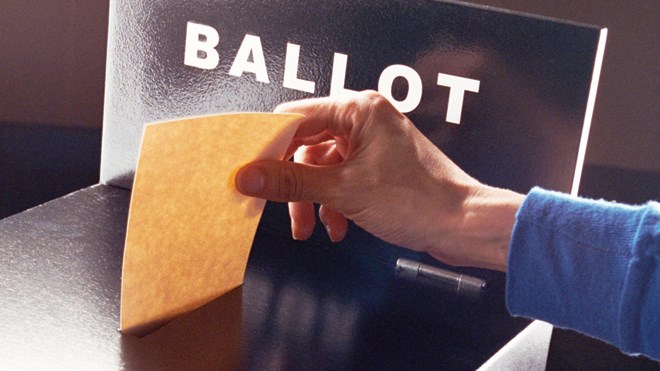The debate over online voting and a ranked ballot for the city’s municipal election will be back before council, but not until 2021.
An online survey done following the 2018 election showed 57 per cent of those surveyed said that they were likely to use online voting if it were available.
But the same survey showed only 1.4 per cent of those reporting they didn’t vote in the 2018 election didn’t vote because of the lack of an alternative method such as online voting.
The data was contained in a report on the 2018 municipal election that was presented to city council Monday.
City clerk Stephen O’Brien said staff will once again be looking at alternative methods of voting, as well as a ranked ballot, with a decision required by May 1 of 2021 if it is to be implemented in the 2022 election.
“Additional engagement on voting methods will be conducted prior to the 2022 municipal and school board elections and will inform future reports to Council,” says O’Brien’s report.
“The City Clerk’s Office will include recommendations for remote voting methods for Council consideration well before the May 1, 2021 statutory deadline.”
Council allowed internet voting during the advanced voting period in the 2014 municipal election and 33 per cent of all votes cast were done using that method.
But in 2017 council voted 7-6 against allowing internet voting in the 2018 election, with opponents citing security concerns as the prime reason.
Six of the seven councillors voting it down remain on council.
As for a ranked ballot, only 14 per cent of those surveyed were “very familiar” with what it was and 43 per cent of those surveyed were “not familiar” with what it was.
The City of London was the only municipality in the province to use a ranked ballot in the last election.
Other highlights of the municipal election report include:
-
90 per cent of those polled were happy with the election experience.
-
Total cost to the city of the 2018 election was $449,000, up 25 per cent from 2014.
-
Providing enough trained people to manage the polling stations was the biggest administrative challenge of the 2018 election.
-
The city used 104 city employees in addition to members of the general public.
-
Guelph’s high border and tenant ratio contribute to issues regarding an accurate voters list.
-
People registering to vote at the polling stations when they found out they weren’t on the list contributed to long lineups and delays.
-
Residents of some new developments, such as The Metalworks, were left off the voters list.
-
Two long-term care facilities declined to provide information needed to register residents living there to vote, due to privacy concerns.
-
42 people voted by proxy.
-
There were 18,287 amendments made to the voters list.
-
Voter notification cards mailed out to remind voters to vote cost $88,500.
-
94 per cent of those surveyed were satisfied with their polling station.
-
The leading reason given for not voting (23 per cent) was dislike for candidates or no one that motivated the respondent to vote.
-
Wait time at polling stations was listed as the reason given by 6 per cent of those that didn’t vote.
